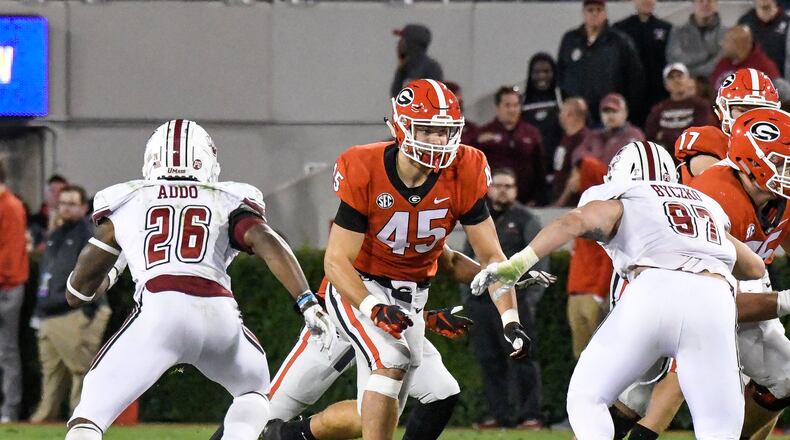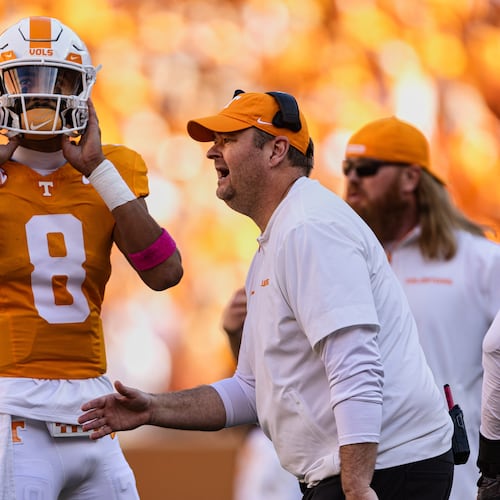Former Georgia tight end Luke Ford had his appeal for immediate eligibility at Illinois denied, meaning he’ll need to sit out this season.
Ford, represented by Thomas Mars, had said the primary reason for his transfer was to be closer to an ailing grandfather.
Mars, who gained notoriety for representing the successful transfer of Ohio State quarterback Justin Fields -- who was granted immediate eligibility after leaving UGA -- said the Ford family will be all right.
"Luke and his family are disappointed, of course," Mars told ESPN.com. "But they're the kind of people who have the unusual ability to maintain a very positive attitude -- even in the face of disappointment. As Luke just said to me in a very grateful way, 'Sometimes it works out, and sometimes it doesn't.’ "
Many expected Mars to be able to swing the case and the NCAA ruling in Ford's favor.
The NCAA transfer portal and the issues surrounding it were discussed in every meeting involving coaches at the SEC Spring Meetings at the Hilton Sandestin Beach Golf Resort & Spa last week.
College athletes have always had the option to transfer from one school to the next, but the rules governing the immediacy of eligibility have grown more favorable for student-athletes in recent years.
The transfer portal, which includes every collegiate sport, is the latest tool available to student athletes. College athletes need only go to their respective school’s compliance department and request to enter it. Other schools can than contact the student-athletes about he potential for transfer.
SEC commissioner Greg Sankey discussed some of the complications with the portal that have raised red flags.
“I identified my concerns that we have young people going into the transfer portal who are under the impression perhaps there’s a waiver on the other side,” Sankey said, “and are making decisions when that may not be the case. The focus (was) on students-athletes understanding their status as they enter this (transfer) process …. so they make informed decisions.”
Another issue coaches expressed concern with related to the timing of transfers.
“We also talked about last year’s change around the four-game opportunity to play without using a season of eligibility,” Sankey said, “and then in late September when we hit that four-game mark maybe some changes for student athletes who said ‘I’m going to transfer, I want to save my year of eligibility.’ ”
Georgia coach Kirby Smart didn’t express much concern when asked for his take on the transfer portal, even though the Bulldogs lost their backup quarterback (Fields) and No. 2 tight end (Ford) to transfers this offseason.
“I think if you look at the history the last 15 years in college football, there’s been very subtle change,” Smart said. “Kids have always been able to go places, change and make decisions. Roster management hasn’t changed from the standpoint of, we’ve been working off 85, working off medicals. There’s been slight changes to the number of guys you can sign early, there’s been a slight of increase of players who have come out early over time.
“As we continue to grow, it’s something we’ll deal with. I don’t think there’s a major concern there. You’ve got 85 scholarships, you operate at your 85. NFL teams do it with less than that so I’m not that concerned about roster management as I am making sure what’s best for the student athlete is what we do.”
About the Author
Keep Reading
The Latest
Featured


